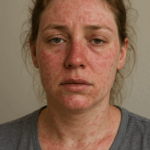At Askdoctor.ai, we understand the growing interest in detox protocols and the confusion surrounding their effectiveness. That’s why we’ve created this content to help you differentiate between scientifically backed methods and those rooted in pseudoscience. Our goal is to provide you with clear, evidence-based information on how to support your body’s natural detox processes so you can make informed decisions about your health.
Detox protocols are everywhere—featured in over 600 million Google search results and widely promoted on social media, blogs, and wellness centers. From 3-day juice cleanses to herbal teas and colon flushes, these methods claim to “eliminate toxins” and leave you feeling refreshed. In fact, a 2021 survey by the National Center for Complementary and Integrative Health (NCCIH) found that about 16% of U.S. adults have tried some form of detox diet or cleanse. But how much of this is supported by science, and how much is just clever marketing?
In this article, we’ll explore what detoxing really means, how your body naturally detoxifies, and whether these popular methods offer any real benefit—or are mostly pseudoscience with a wellness-friendly label.
What Are Detox Protocols?
Detoxification (or “detox”) is the process of eliminating toxins from the body. Your liver, kidneys, lungs, and skin naturally handle detoxification, with the liver alone filtering about 1.5 quarts of blood per minute to remove toxins. Detox protocols, however, are methods aimed at supporting this process, including:
- Fasting or juice cleanses
- Herbal teas or supplements
- Colon cleanses or enemas
- Detox foot pads or baths
- Infrared saunas
- Special diets (e.g., raw food, alkaline diet)
The million-dollar question is: Do they work? Scientific evidence remains limited for most of these methods.
How Your Body Detoxes Naturally
Your body has a 24/7 detox system. Organs like your liver, kidneys, skin, lungs, and digestive tract filter and eliminate waste efficiently and effectively.
According to the National Institutes of Health (NIH), the liver converts toxins into harmless substances or ensures they’re removed through bile or urine. The kidneys filter your blood and flush waste through urine. Your lungs expel carbon dioxide, and your skin releases toxins through sweat.
Unless your organs are damaged or diseased, your body handles toxins on its own—without the need for special teas, cleanses, or extreme diets.
Common Detox Symptoms & Causes of “Feeling Toxic”
Many people turn to detoxes when they experience:
- Brain fog
- Fatigue
- Digestive issues (bloating, constipation)
- Acne or skin flare-ups
- Headaches
- Sugar or caffeine cravings
But here’s the thing: these symptoms are not always caused by toxins. More often, they result from:
- Poor diet and hydration
- Lack of sleep
- Alcohol or caffeine overuse
- Sedentary lifestyle
- Gut microbiome imbalance
For example, research from the Mayo Clinic shows that dehydration alone can cause fatigue and digestive issues. According to a study in the Journal of Clinical Sleep Medicine, lack of sleep can lead to brain fog and other cognitive impairments.
So, while a detox might feel like it’s helping, the real improvement often comes from removing junk and adding healthier habits—not from the detox protocol itself.
Why Do People Feel Better After a Detox?
Many people report feeling better after completing a detox. This improved well-being often comes from what they stop doing rather than what the detox actually does.
Here are some common changes during a detox that can lead to feeling better:
- Eliminating alcohol, caffeine, sugar, and processed foods
- Drinking more water
- Getting more sleep and rest
- Eating more vegetables and fruits
- Reducing portion sizes or fasting
These changes can reduce inflammation, improve digestion, and increase energy levels—making it seem like the detox worked when, in fact, it was simply healthier habits taking effect.
The Science Behind Popular Detox Protocols
Here’s what the evidence says about some of the most common detox protocols:
Juice Cleanses
Juice fasts are marketed to rest the digestive system and flush out toxins. But according to Harvard Health, they lack essential nutrients like protein and fiber. Long-term use can lead to muscle loss and unstable blood sugar levels.
Bottom Line: It may offer a short-term energy boost, but it is not a sustainable or scientifically proven detox method.
Detox Teas and Supplements
Detox teas often contain laxatives or diuretics, causing temporary weight and water loss. Some herbs, like milk thistle, may support liver health, but evidence is limited.
The Mayo Clinic cautions against relying on supplements that promise liver or kidney detox without regulation or clinical backing.
Bottom Line: Many supplements are not evidence-based and can be harmful if overused or unregulated.
Colon Cleanses
Colon irrigation is promoted for removing toxins from the digestive tract. However, Cleveland Clinic warns that this procedure can disrupt the gut microbiome, cause dehydration, and increase the risk of infection.
Bottom Line: Not necessary for detox and may cause harm if not medically supervised.
Infrared Saunas
Saunas promote sweating, and some claim this releases toxins through the skin. While trace amounts of metals may be released, PubMed research shows that sweat is not a major detox pathway.
Bottom Line: Good for relaxation and circulation, but not a reliable detox method.
Real-Life Story: Jamie’s Journey with a Medically Supervised Detox
Jamie, a client of Gutwell Medical, shared her transformative experience with their detox program in a video testimonial. She described how the program significantly improved her health and well-being. Jamie’s story highlights the potential benefits of medically supervised detox programs tailored to individual needs.
Watch her full story here: Jamie’s Detox Success Story.
Lifestyle Adjustments That Actually Help Detox
Rather than relying on random detox protocols, here are proven ways to support your body’s detox systems naturally:
- Eat a Whole-Food Diet
A diet rich in fiber, vegetables, fruits, lean proteins, and healthy fats supports liver and gut health, which are essential for detoxification. According to the Harvard T.H. Chan School of Public Health, consuming fiber can improve digestion and reduce inflammation, which aids in toxin removal. - Stay Hydrated
Proper hydration is key to kidney function and toxin elimination. The National Academies of Sciences, Engineering, and Medicine recommends 3.7 liters (125 ounces) for men and 2.7 liters (91 ounces) for women daily. Adding antioxidants like lemon can further support detoxification. - Prioritize Sleep
Sleep allows the brain to clear toxins via the glymphatic system. Studies show that sleep deprivation can reduce this process by up to 60%. - Exercise Regularly
Regular exercise, even moderate activities like walking, can enhance circulation and lymphatic flow. The American Heart Association suggests at least 150 minutes of moderate exercise per week to support metabolic processes. - Limit Alcohol and Sugar
Reducing alcohol and sugar supports liver health. Research from the World Health Organization highlights the detrimental effects of excessive sugar intake on liver function and overall detoxification. - Support gut Health
A balanced gut microbiome aids in digestion and detoxification. Studies indicate that probiotics found in fermented foods like yogurt can reduce toxin absorption.
These lifestyle changes not only support detoxification but can also improve overall health and well-being.
Treatment Options: Conventional vs. Alternative
Detox protocols range from medically supervised therapies to popular alternative practices. Understanding both helps you make safer choices.
Conventional Treatments
Used when the body is overwhelmed—like in substance withdrawal, poisoning, or organ failure—these include:
- Medical detox programs for alcohol or drug dependence
- Chelation therapy for confirmed heavy metal toxicity
- IV hydration and nutrient support in clinical settings
- Lab testing to address nutrient deficiencies or liver/kidney issues
These are evidence-based and guided by medical professionals.
Alternative Approaches
Some non-medical methods may support overall health, like:
- Saunas to promote sweating
- Herbs like milk thistle for liver support
- Fasting and cleanses, though not medically necessary
According to Harvard Health, your liver and kidneys already detox effectively when supported with good nutrition, hydration, and sleep. Always speak with a doctor before starting any detox regimen—especially if you’re feeling unwell.
FAQs: Detox Protocols Explained
- Do detox diets effectively remove toxins from the body?
No, the body naturally eliminates toxins through the liver and kidneys without the need for special diets. - Are juice cleanses a safe method for detoxification?
Juice cleanses can cause nutrient deficiencies and aren’t a recommended detox method. - Can detox products like teas and supplements aid in weight loss?
Detox products have limited scientific evidence supporting their effectiveness for weight loss. - What are the risks associated with detox programs?
Detox programs can cause dehydration, electrolyte imbalances, and kidney issues if unsupervised. - How can I support my body’s natural detoxification processes?
Eating a balanced diet, staying hydrated, exercising, and getting enough sleep supports natural detoxification.
Conclusion: Detox Protocols – Detox Smarter, Not Harder
Detox protocols may seem appealing, especially when marketed as quick fixes for fatigue, bloating, or brain fog. But most are not supported by scientific evidence—and some may do more harm than good.
Your body is designed to detox naturally. Supporting this process through healthy lifestyle choices—whole foods, hydration, exercise, sleep, and stress management—is the most reliable and sustainable way to feel better.
If you’re experiencing persistent health issues, always consult with a medical professional rather than turn to unproven detox methods.
Have you tried a detox protocol that worked—or didn’t? Share your experience. Your story could help others make informed choices.
References:
NCCIH
Harvard Health
NIH
Mayo Clinic
PubMed
Harvard T.H. Chan School of Public Health
National Academies of Sciences
World Health Organization (WHO)
Harvard Health (Liver & Kidneys)









Leave a Reply